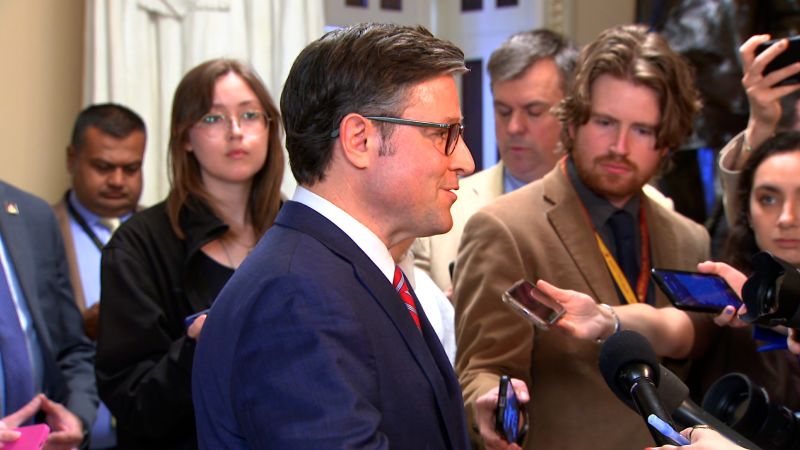House Speaker Mike Johnson found himself in a contentious situation as a bipartisan group of lawmakers voted to advance a bill that would provide aid to Ukraine and Israel. This move was supported by Democrats, much to the disapproval of some hardline Republicans. Among those who opposed the bill were prominent figures like Marjorie Taylor Greene. The decision to support this foreign aid bill may have repercussions within the Republican party, as Republicans could potentially move to oust Johnson as House Speaker for allowing the vote to proceed. Despite facing pushback from within his party, Johnson emphasized the importance of bipartisan cooperation in advancing legislation that benefits both Ukraine and Israel.
Johnson’s position on the foreign aid bill comes at a time of great significance, with tensions running high between Russia and Ukraine. The aid provided by this bill could play a crucial role in supporting Ukraine in their ongoing conflict with Russia. Additionally, the bill also includes aid for Israel, a key ally in the Middle East. By supporting this bill, Johnson and the group of bipartisan lawmakers demonstrated a commitment to upholding relationships with key allies and providing necessary assistance in times of need. While this decision may have elicited backlash from some members of the Republican party, it highlights the importance of putting national interests above partisan divisions.
As the House Speaker, Johnson faces the challenge of balancing the interests of both Democrats and Republicans in the legislative process. The decision to advance the foreign aid bill reflects the need for cooperation between both parties in addressing pressing geopolitical issues. Johnson’s role in allowing the vote to proceed indicates a willingness to prioritize the national interest over partisan politics. However, this move has also put him at odds with some members of his own party who may view his actions as a betrayal of conservative principles. The outcome of the final vote on the bill could have significant implications for Johnson’s position as House Speaker.
The potential consequences of Republicans moving to oust Johnson as House Speaker illustrate the deep divisions within the party regarding foreign policy and legislative priorities. While some Republicans may see Johnson’s support for the foreign aid bill as a necessary step in addressing critical international challenges, others view it as a departure from core conservative values. The internal conflict within the Republican party over this issue highlights the complex dynamics at play in navigating foreign policy decisions in a polarized political environment. Johnson’s ability to navigate these challenges will be a key factor in determining his future as House Speaker and his standing within the party.
In his remarks to reporters following the bipartisan vote on the foreign aid bill, Johnson emphasized the importance of unity and cooperation in addressing pressing global issues. He reiterated the need for bipartisan support in advancing legislation that benefits both Ukraine and Israel, underscoring the shared interests that transcend party divides. Johnson’s commitment to working across party lines reflects a strategic approach to governance that prioritizes diplomacy and cooperation in addressing complex international challenges. By advocating for the passage of this bill, Johnson has positioned himself as a leader willing to prioritize the national interest above partisan interests.
The final vote on the foreign aid bill, which could take place as soon as Saturday, will be a crucial test of Johnson’s leadership and ability to navigate the complex political landscape in Congress. The outcome of this vote will not only determine the fate of the aid package for Ukraine and Israel but also have broader implications for Johnson’s standing within the Republican party. Whether Johnson will be able to maintain his position as House Speaker in the face of potential backlash from hardline Republicans remains to be seen. However, his willingness to support bipartisan efforts to address critical international issues signals a commitment to effective governance and diplomacy in a challenging political environment.













